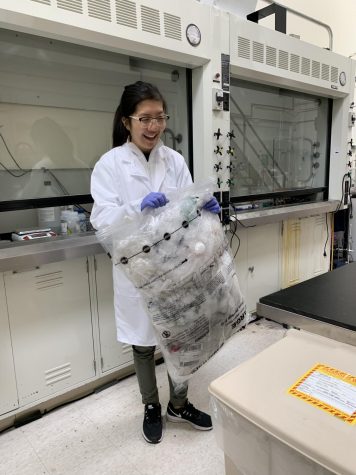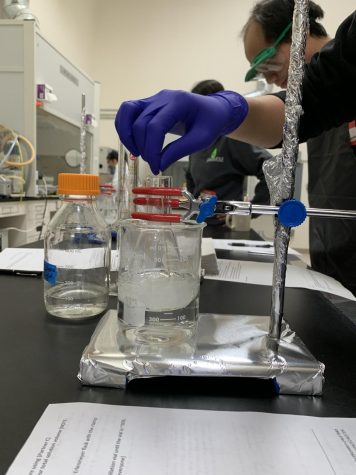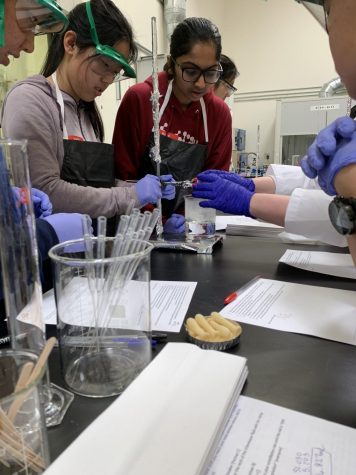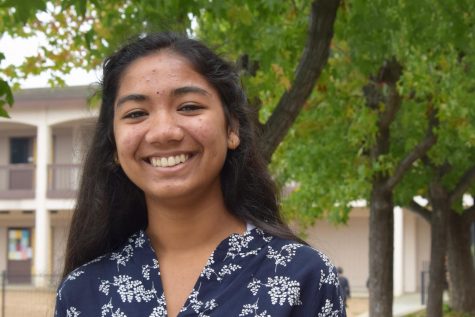MV Environmental Science club takes a trip to BioCellection
The club earns a new perspective on recycling plastics
April 11, 2019
To better understand plastic recycling, MV Environmental Science club organized a trip to BioCellection, a biotechnological organization dedicated to transforming unrecyclable plastics into sustainable materials. According to officer and junior Kreena Parikh, what they found, was almost a tale of Rumpelstiltskin.
“It was really cool to see how plastic could turn into something as simple as face cleanser,” Parikh said. “[Biocellection is] sort of spinning straw into gold, straw meaning the useless plastic into gold meaning the cleanser or [anything].”

On Saturday, March 23, the club officers and advisor and AP Chemistry teacher Kavita Gupta took a few members along with Gupta’s Upcycling Plastics campaign to BioCellection, an organization based out of Menlo Park, to learn more about plastic pollution and recycling. Founded by high school friends Jeanny Yao and Miranda Wang in 2015, the company has successfully converted at least 30 kilograms of plastics into acquiescent material worth $1000 – $2,500 per ton, preventing the release of carbon dioxide from plastics landfilling and petroleum consumption for the chemical products.
For this particular visit, chief operating officer Jeanny Yao and lab technician and administrator Teeba Almarah decided to conduct a lab where members could create a face cleanser with 10% azelaic acid, a dicarboxylic chemical they created in their lab from the upcycled plastics. For Yao, the lab experiment serves as physical proof of technologies that can and are converting unusable plastics into something that can be applied everywhere with great value.

“Plastic waste is only trash or is only pollution because of the limited technologies and innovations that we have,” Yao said. “It’s because of the way we’re handling it … [because] if we have better ways to treat plastic waste and valorize them into products, then they’re no longer waste, then they’re valuable resources that we can use to create things that we depend on.”
For Gupta, dealing with unrecyclable plastics can be avoided to a certain extent if people know how to recycle all plastics. However, with different plastic collection agencies and regulations as well as understanding plastic pollution, Gupta finds the process to be complicated and tedious. Instead, she aims for overall reduction and reuse of plastic, supporting a circular economy.
“If one person throws contaminated stuff, the entire batch becomes useless so there’s huge learning, this is a huge issue,” Gupta said. “The real solution is not really in recycling but in reducing as well. Unless we change our lifestyles and reduce the amount of plastics we are consuming and producing, I think it’s going to be a huge problem for us.”

Parikh believes that when it comes to recycling plastics, researching and finding out local Material Recovery Facilities (MRF) can be beneficial as well, something she and officer and junior Iris Xia have plans to talk with the rest of the club when promoting for Earth Day on Monday, April 22.
“We’re lucky since we’re our own club, [so] we can really try to have people recognize science and its role in helping with environmental stuff,” Xia said. “So with our upcoming Earth Fair, talking about BioCellection, recycling the right way, reducing waste and water, these things aren’t super hard for people to do. We really want people [to] recognize that.”

















